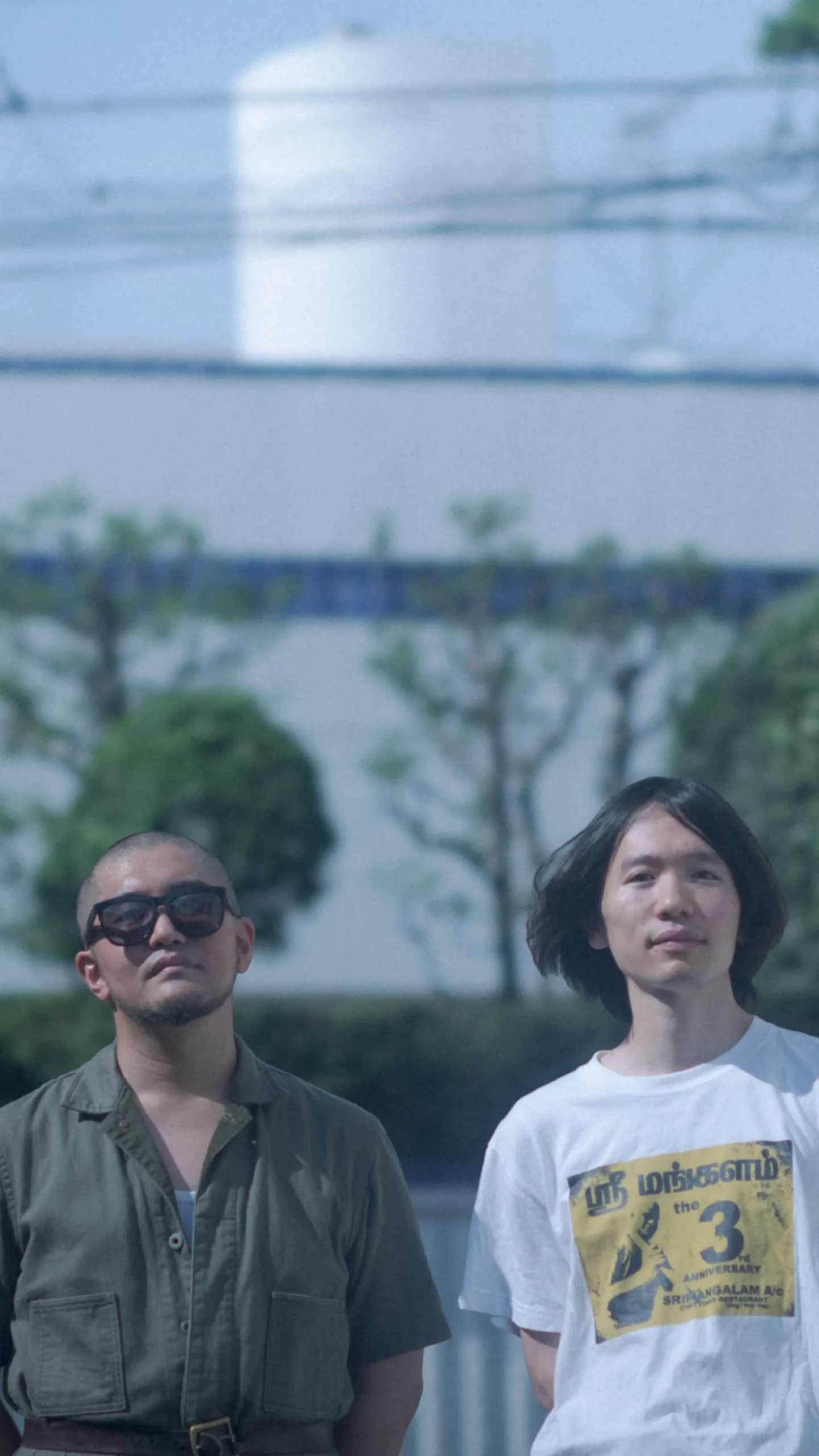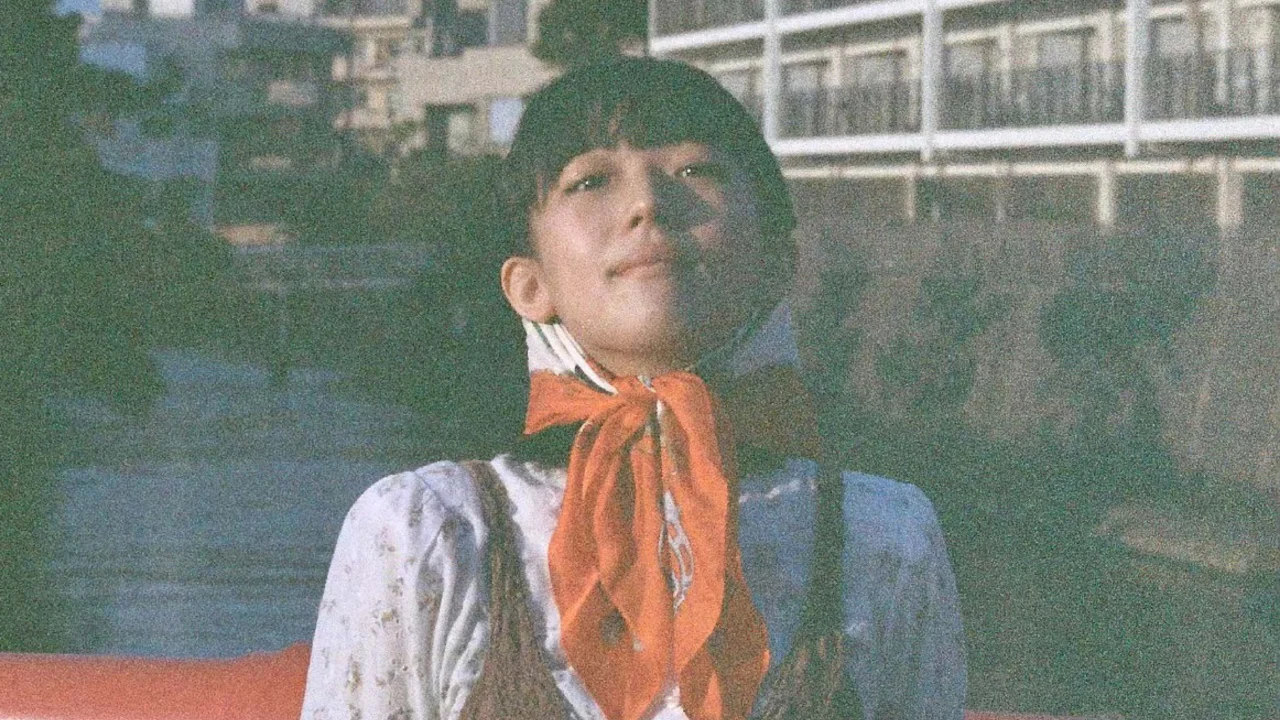“I can’t stay like this anymore.” That restless feeling drifts through the air. Sometimes it sinks into despair, sometimes it clings to memories like talismans. Yet quietly, it senses that the moment to take the next step is already here. Yuransen’s third album, MY CHEMICAL ROMANCE, captures exactly that tension and urgency.
This might be the album that documents the band stepping into adulthood, venturing into a new world and testing new ground. Until now, Yuransen’s music revolved around the enigmatic yet magnetic songwriter Itaru Uchimura (Vo/Gt), with the band shaping his creations as a collective. On MY CHEMICAL ROMANCE, the creative process has shifted. Kei Sunai (Dr) and Shuwa Nagai (Pf) join as composers, and Takuma Motomura (Ba) takes the reins on mixing. The change began when Uchimura hit a slump, but not the usual “frontman’s struggle.” As he puts it simply, “It’ll work out. It’s okay.”
He also notes, “Yuransen’s sense of place is becoming clearer and clearer.” What has transformed inside the band? And how did MY CHEMICAL ROMANCE become such a captivating and mysterious masterpiece? In conversations with Uchimura and Motomura, the answer revealed itself: a band with quiet, steady vitality and a powerful testament to the magic of creating and living together.
INDEX
Yuransen as a Safe Haven, Says Motomura
Yuransen’s new album, MY CHEMICAL ROMANCE, marks a shift from their past approach. Instead of simply arranging songs written by Uchimura, the record features compositions by Sunai and Nagai, as well as tracks mixed by Motomura, resulting in a work that feels more collectively created than ever. Listening to the album, it’s easy to sense that mixing has become almost as integral to the songwriting process as composing itself.
Motomura: That’s right. Nowadays, the boundaries between arranging and composing, or between arranging and mixing, are gradually dissolving. In that sense, mixing carries a feeling similar to composing, even if not quite at the same level.
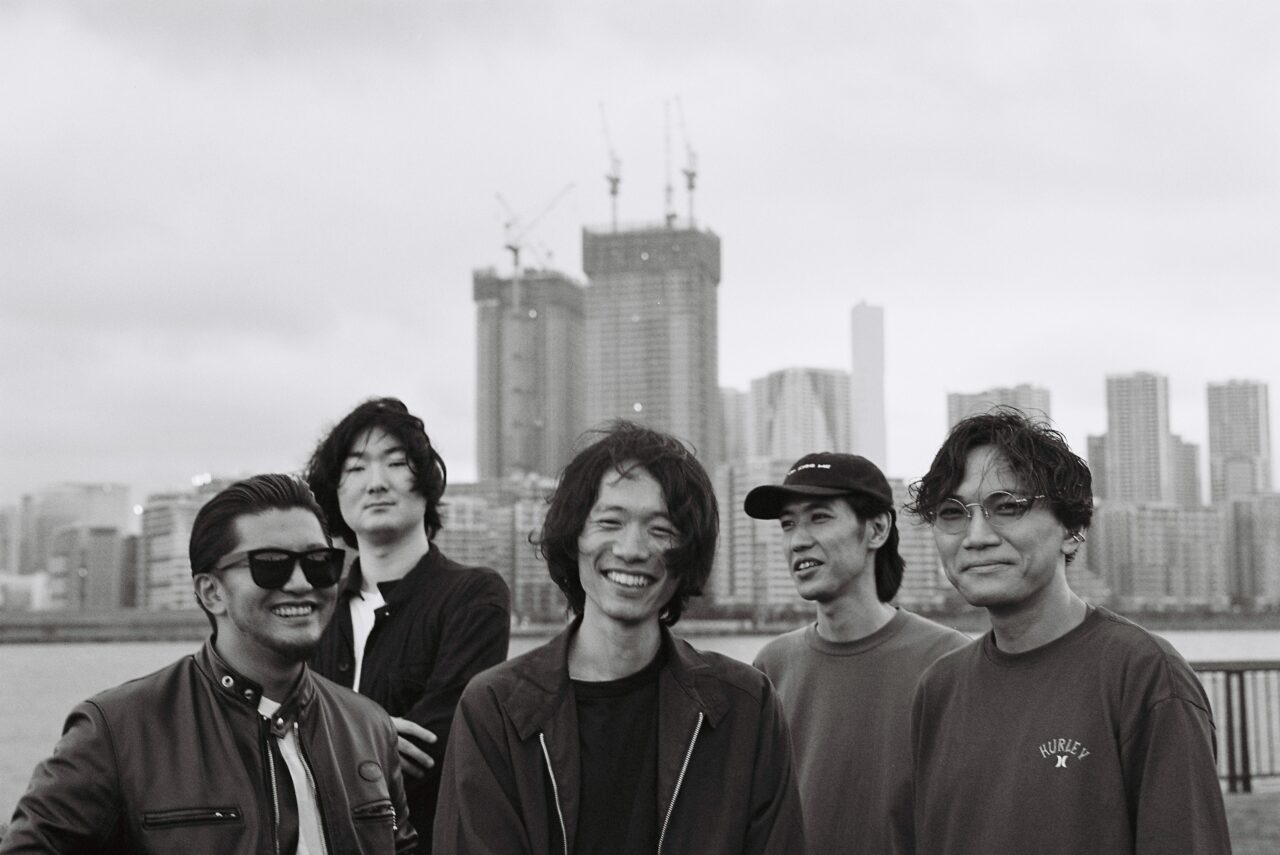
Centered around singer-songwriter Itaru Uchimura (Vo/Gt), who interprets rock, folk, and country in his own unique way, Yuransen also includes Satofumi Ito (Key), Shuwa Nagai (Pf), Takuma Motomura (Ba), and Kei Sunai (Ds). By blending diverse grooves, the band creates a sound that is at once nostalgic, fresh, and thrilling.
Why did the band feel the need to pursue this kind of change?
Uchimura: After finishing our previous album, MY REVOLUTION (2022), I had intended to start writing songs for the next album. But I struggled to create new material. I couldn’t keep up with the pace of production, and even when trying to make an album, there weren’t enough songs. Naturally, the other members started contributing their own compositions from there.
Motomura: When it became clear that Itaru was struggling a bit, Sunai and Nagai stepped in as composers. Both of them have been writing music in their own projects anyway. For us, there was always this unspoken assumption that Yuransen was a band where Itaru Uchimura wrote the songs. But then we realized, ‘Wait, the other members can write too.’ That felt like a very natural progression. Looking back now, it’s already our third album, and I think the band must have been ready for some kind of change.
Uchimura: Yes, that’s right.
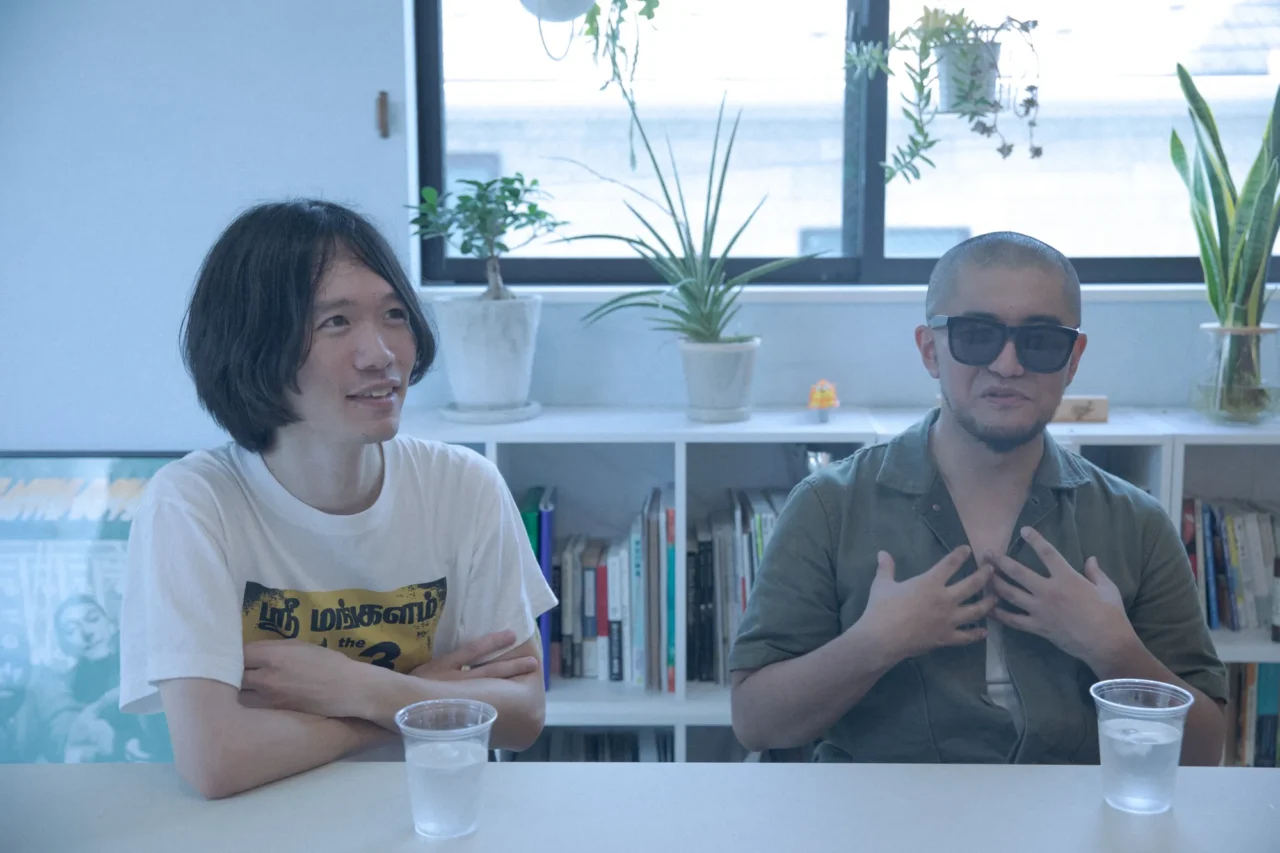
Do you feel that the change in how the songs are created has altered Yuransen’s role or meaning for you as a band?
Motomura: Not at all. For me, Yuransen has always been a stable and reassuring place. The band even acts as a kind of emotional barometer. If I ever feel down about Yuransen, it’s not because the band is struggling—it’s probably because I am. No matter how off I feel, I rarely think, “The band is out of sync.” That’s the level of trust I have in this group.
Uchimura: Musically, each of the five of us has very different tastes, and we’re all pretty even-tempered. Since we come from such different worlds, moods don’t spread in a weird way.
Motomura: Exactly. Everyone maintains their own “normal” state. Just because one person is feeling low, it doesn’t drag the others down. Each of us keeps our own pace and energy. In that sense, it’s a really rare kind of community. Sometimes friends from other bands ask me, “How do you create Yuransen’s sense of calm?” And I just have to laugh and say, “There’s nothing to it.” It’s not something you can really explain.
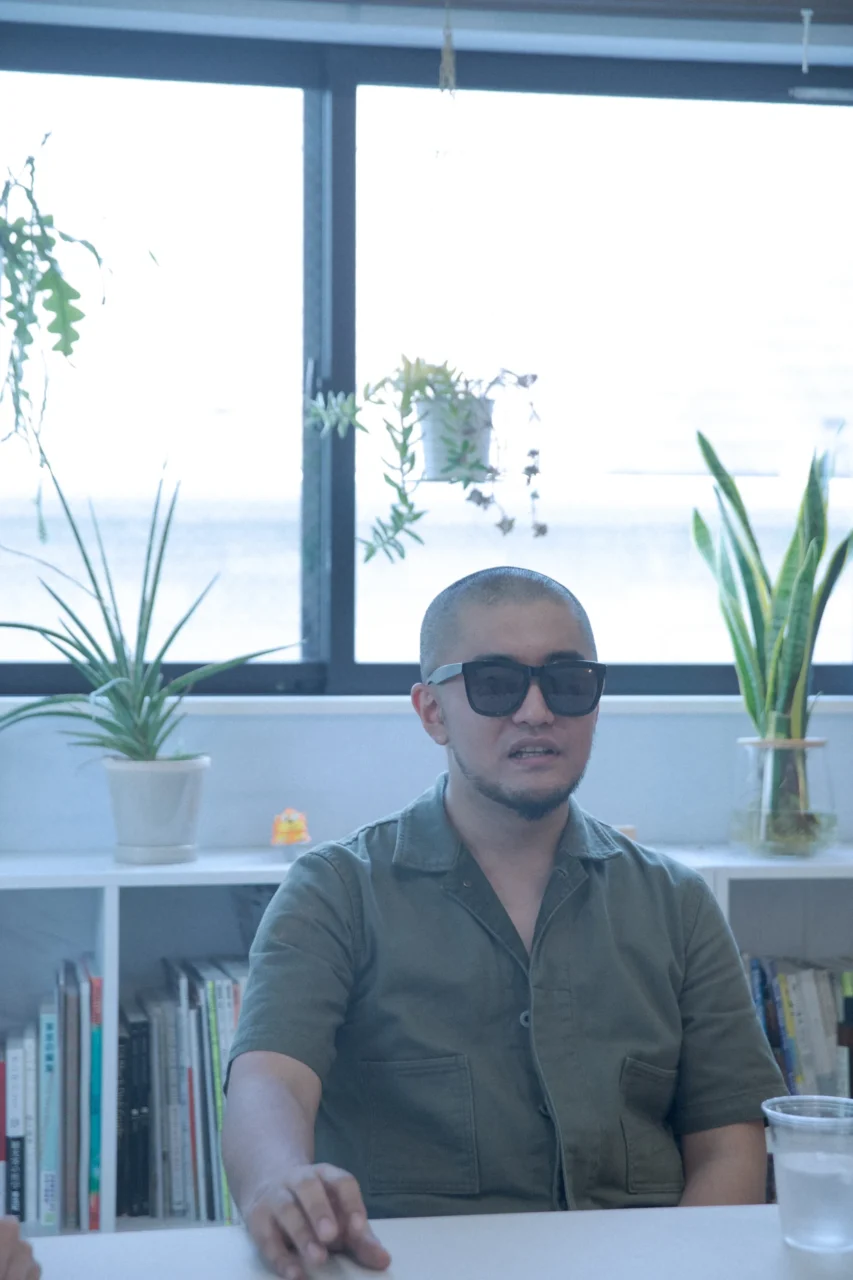
Uchimura: This time, Sunai created the overall framework for the album and also thought about the song order and thematic elements. With Sunai able to take an overarching view of the band, Motomura handling the mixing, and me focusing on the lyrics, each of us had our own role. Yuransen has this kind of dynamic where everyone can exist independently within the group. I feel that the band’s identity as a “place” becomes clearer with each project. Because of that, our trust in one another keeps growing, and we’ve naturally learned how to divide responsibilities and leave things to each other with confidence.
INDEX
The Confidence That Comes with Age: “It’s Going to Be Alright“
MY CHEMICAL ROMANCE is your first album created after entering your thirties. Do you think this stage of life has influenced how the band’s identity as a “place” has become clearer?
Motomura: Definitely. For example, Sunai made a spreadsheet to track the progress of the songs. He worked at a regular company after university, so he brings a level of professional skill that someone like me, a completely unfiltered band guy, finds impressive—like, “Wow, you can actually do that!” [laughs]. That shows how our age and accumulated experience are shaping the band. When we were younger, we were too caught up in the moment to approach making an album as a proper, organized project.
Uchimura, how do you feel your age is reflected in the band’s work?
Uchimura: Lately, I find myself thinking, “It’ll all work out!” [laughs]
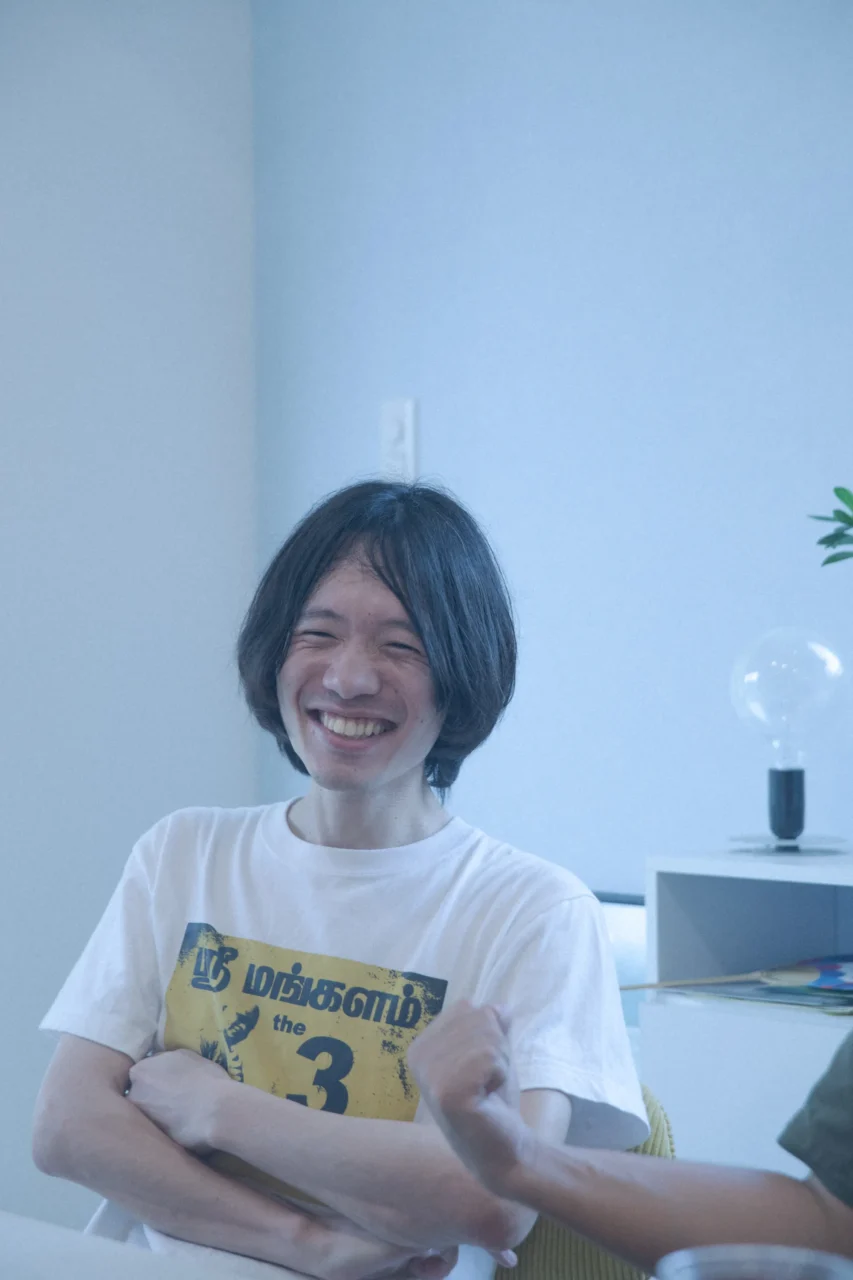
Motomura: [laughs].
Uchimura: “It’ll work out, so it’s all fine!”
Motomura: That’s true. This time, Itaru really took a broad, big-picture approach.
Uchimura: I might have been a bit irresponsible [laughs]. Like, “I can’t write the songs, but the others will handle it, so I’ll focus on the lyrics.” Getting older seems to have made me more optimistic. Is that a bad thing?
Motomura: Not at all. I think it’s a good thing.
Uchimura: Of course, it only works because everyone is there. I think, “If it’s Yuransen, it’ll be fine.” Learning to step back and take a broader view is something you probably appreciate more with age. You realize, “We’ve gotten through things before, so we’ll manage now too.” Icchan [Satofumi Ito / Key] once said, “As long as the band is at 100% when we’re all together, it’s fine. Divided among five people, that’s only 20% each, so it’s okay.”l right.
Motomura: Really? That’s what he said? Sunai and Ito have definitely improved their teamwork. And they can even make spreadsheets [laughs].
Being in a mindset of “It’ll work out” seems like a healthy mental state. But with age and experience, I imagine it’s also easier to imagine problems before they happen.
Uchimura: True. But hearing Icchan’s advice and seeing how Sunai approaches production makes me think, “Ah, this is how we get through it.” You gradually learn the ways to make things work.
Motomura: To give a concrete example, if I’m feeling unwell and can’t make it to a recording session, in the past I would have forced myself to go. But now, I can honestly say, “Please let me take the day off.” I think that’s how the meaning of “it’ll work out” expands as you get older.
INDEX
The Calm and Balance Found in Life as a Band
This album is incredibly stimulating with its spatial sound and unpredictable progressions. It feels like it really challenges the listener’s act of listening. It strikes me as your most thought-provoking album yet. Was that intentional?
Motomura: I’d say that awareness was definitely there during the mixing. It’s not about boldly posing questions—it’s more of a playful little trick. I hope listeners think, “What is this strange feeling?” It’s a subtle kind of question, but it’s definitely there. How about you, Itaru?
Uchimura: A question… hmm. I think the act of doing something interesting is the ultimate question. Even if it can’t be expressed as a message, the very act of freely creating a work together carries its own kind of inquiry. Making something intangible and sharing it with listeners—that in itself is remarkable.
Motomura: Exactly. Being in a band may be inefficient in today’s world, but the older I get, the more I value it. There’s something exciting about forming a community and creating something together. I’m not sure if we’re fully showing that, but I hope more people try it.
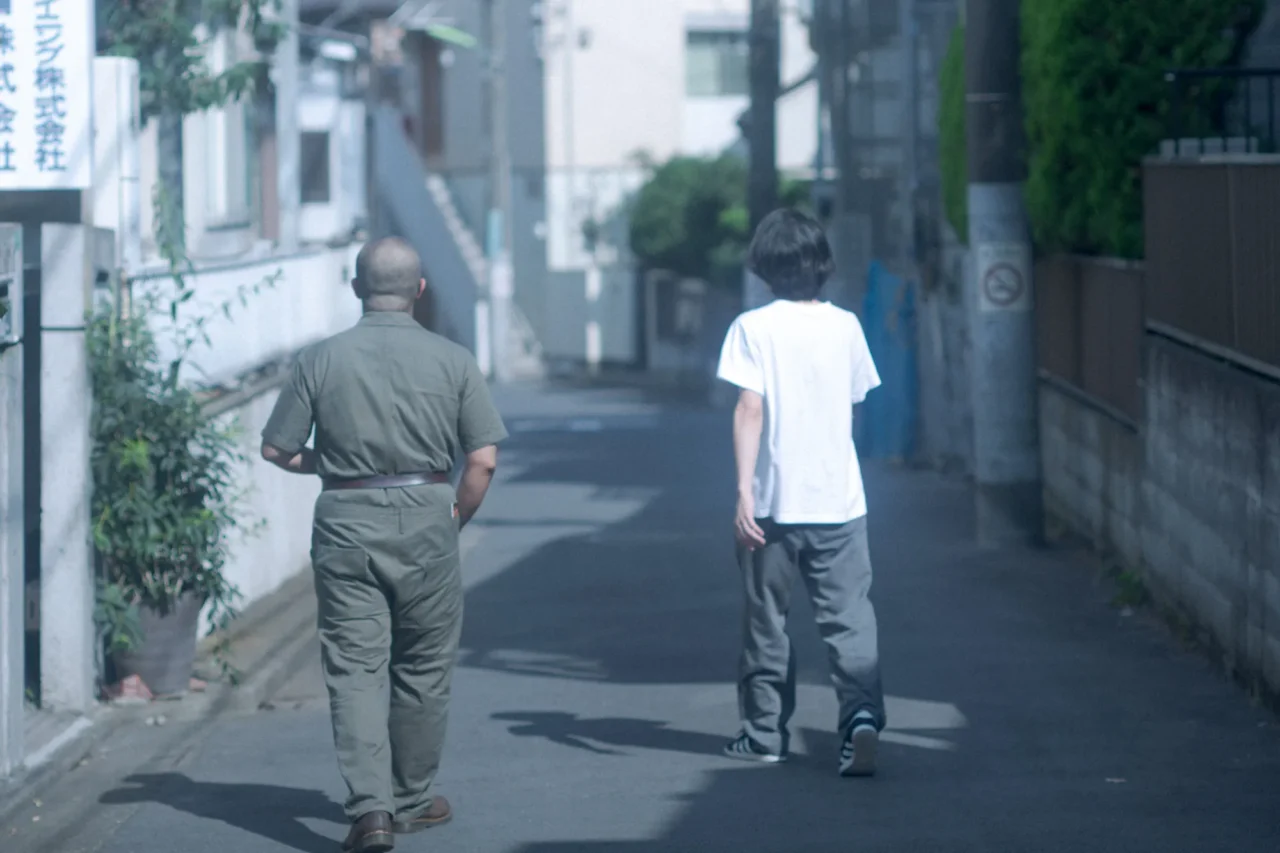
Uchimura: That’s what connects to ideas of peace and love.
Motomura: For me, the sense of peace and order has definitely come from being in a band. People describe it differently, but a band creates a kind of closeness that’s different from friends, family, or romantic partners. Back in school, I couldn’t have imagined relationships like this — it’s like discovering, “Wow, this kind of connection exists!” That’s the experience a band provides.
Uchimura: It’s fascinating. Music itself doesn’t have a physical form, yet being able to create it together is the real magic of being in a band.
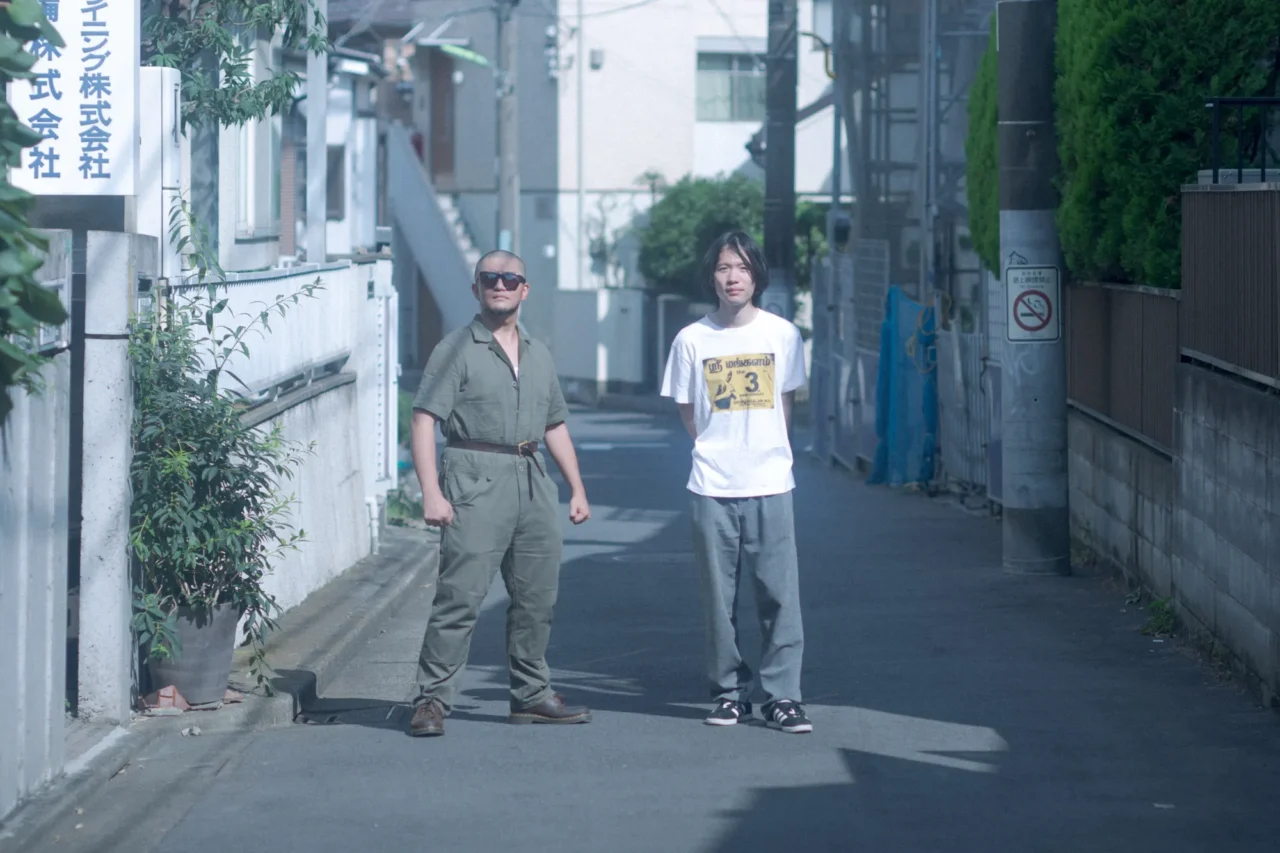
INDEX
Itaru Uchimura’s Lyrics Speak More Directly with Deeper Social Awareness
Even though more members are writing songs now, Itaru still consistently handles the lyrics and vocals. Motomura, what do you find most compelling about his singing and words?
Motomura: I actually realized something for the first time while working on this album—I can’t generate any ideas without words. Up until now, everyone I’ve played in bands with, including Itaru, always brought both lyrics and music together. But Sunai and Nagai bring songs with placeholder melodies, just singing la la la… When I encountered that method for the first time, I was like, “I have no idea what to do!” Yet once Itaru’s lyrics were added, everything clicked, and I could see exactly “how this song should work.”
That’s fascinating.
Motomura: I also feel that Itaru’s lyrics have evolved over the years. On this album in particular, the words feel much more direct. In the past, I saw his lyrics as “hitting the core, but taking detours along the way.” This time, they come straight at you—I even found myself reading them with tears in my eyes.
Uchimura: Ahh…
Motomura: Thinking back to an early song, “Yama,” the opening lyrics go: “I’m rousing myself now / Eating from a big rice bowl.” At the time, I was stunned—“I’ve never heard lyrics like this!” But with this album, the feeling is different. The lyrics are more straightforward and direct than ever before.
Uchimura: I think that’s something that comes with getting older.
Looking back at your own work, what changes do you see in your lyrics?
Uchimura: Maybe it’s the things I eat that have changed.
Everyone: [laughs].
Uchimura: Lately, I’ve been eating nothing but soba. Rice has gotten so expensive too [laughs].
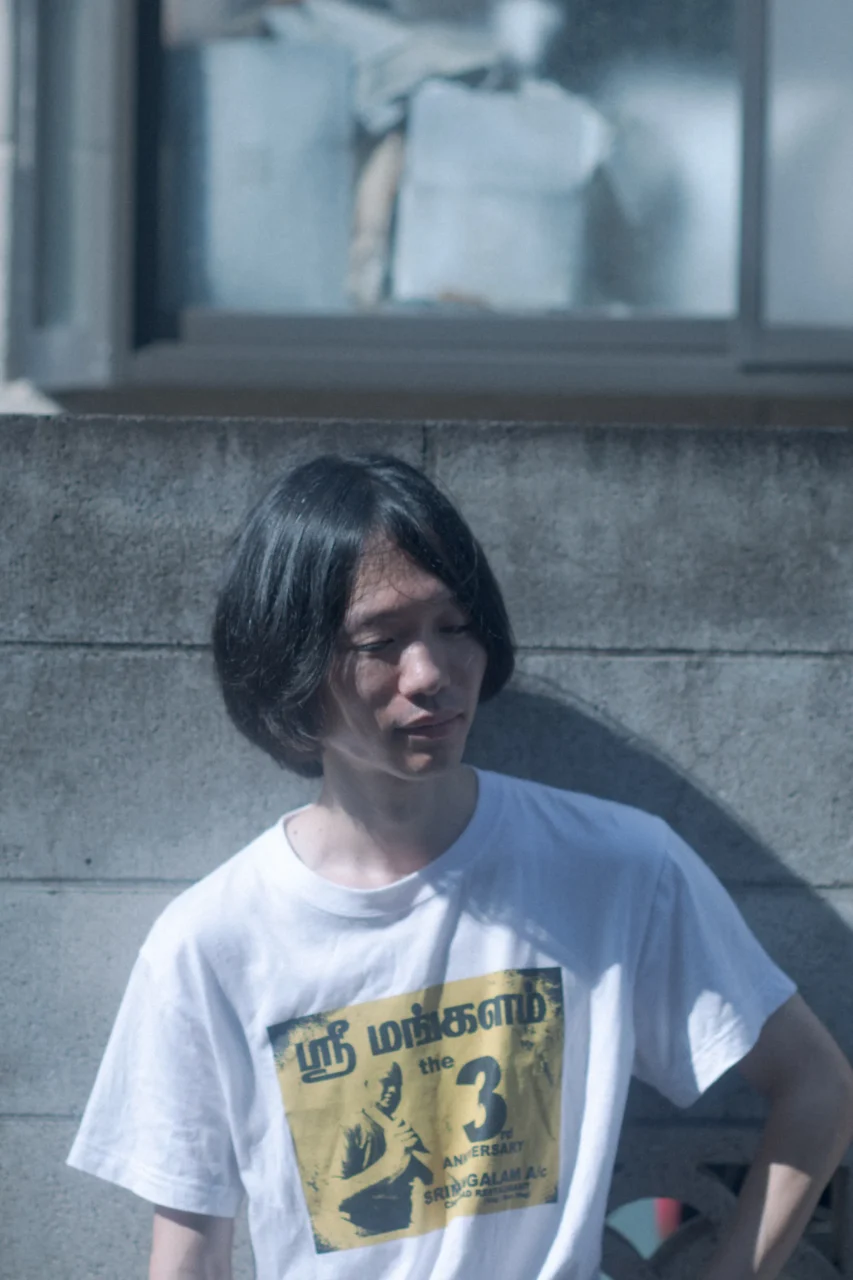
Motomura: If rice had been pricey back then, “Yama” might never have existed [laughs].
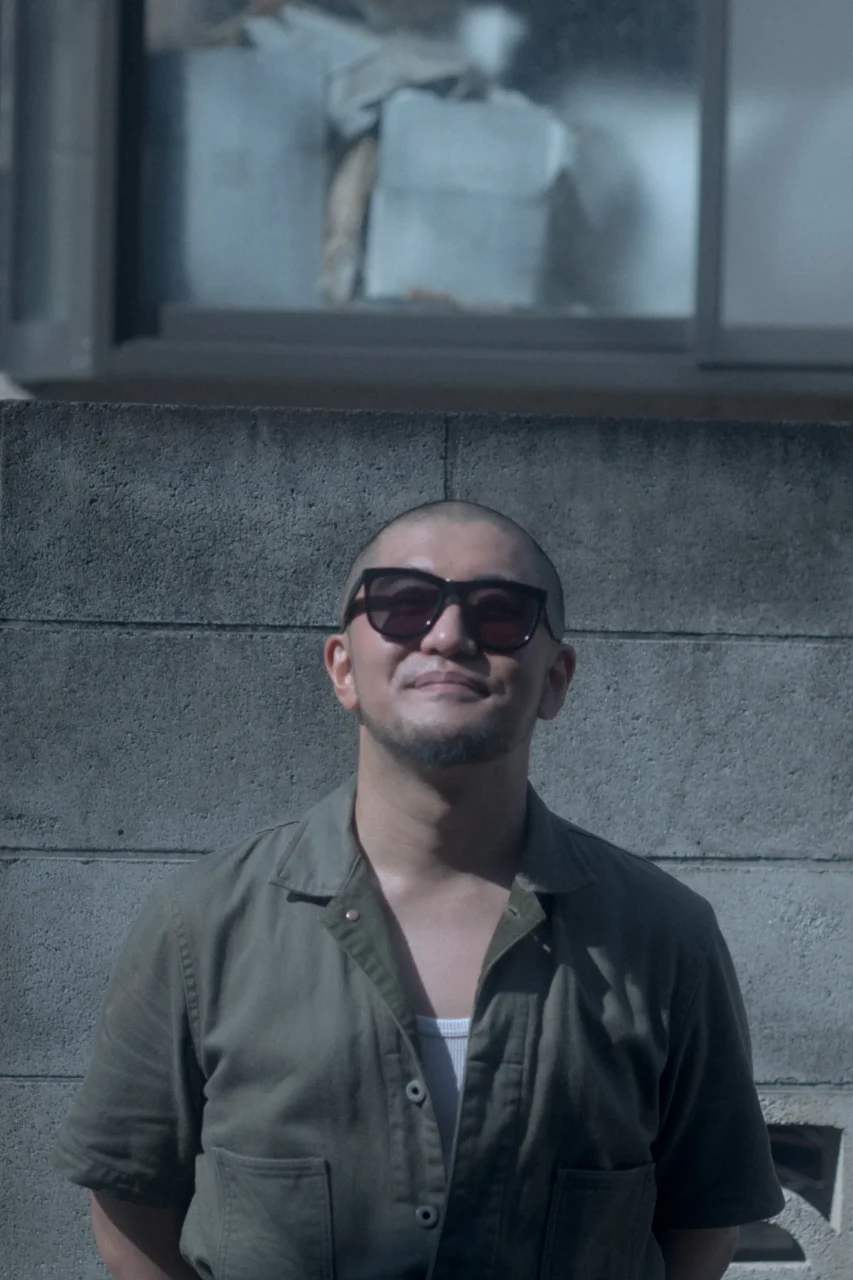
Uchimura: Yeah, that’s probably true [laughs]. When I wrote “Yama,” I wasn’t paying any attention to the price of rice.
[laughs] But doesn’t that also suggest that society is starting to influence your lyrics?
Uchimura: Absolutely. Everything is connected.
Motomura: And it’s not just the lyrics. I think our awareness of society has grown in the instruments and mixing as well. That goes for everyone. During the album’s production, we started considering its overall concept, and one idea that really resonated with me was what Sunai suggested: “ambiguity.” That every situation has multiple sides. It lined up perfectly with what I had been thinking lately. To put it simply: right here, things might feel calm and peaceful, but somewhere else in the world, many people are struggling.
Yes, exactly.
Motomura: I wanted to express in some way that multiple worlds are always running parallel. Things can conflict. Two realities can coexist. I wanted to make sure that never gets forgotten, and I tried to express that through the mixing.
For example, the first track, “Intro: Good Morning, This Is a Navigation to Nowhere,” combines the piano solo from MY REVOLUTION’s “Good Morning” with an improvisation based on the melody played by Nagai. The track conveys the coexistence of a “correct Good Morning” and an “incorrect Good Morning.” We experimented with this approach on many other tracks throughout the album.
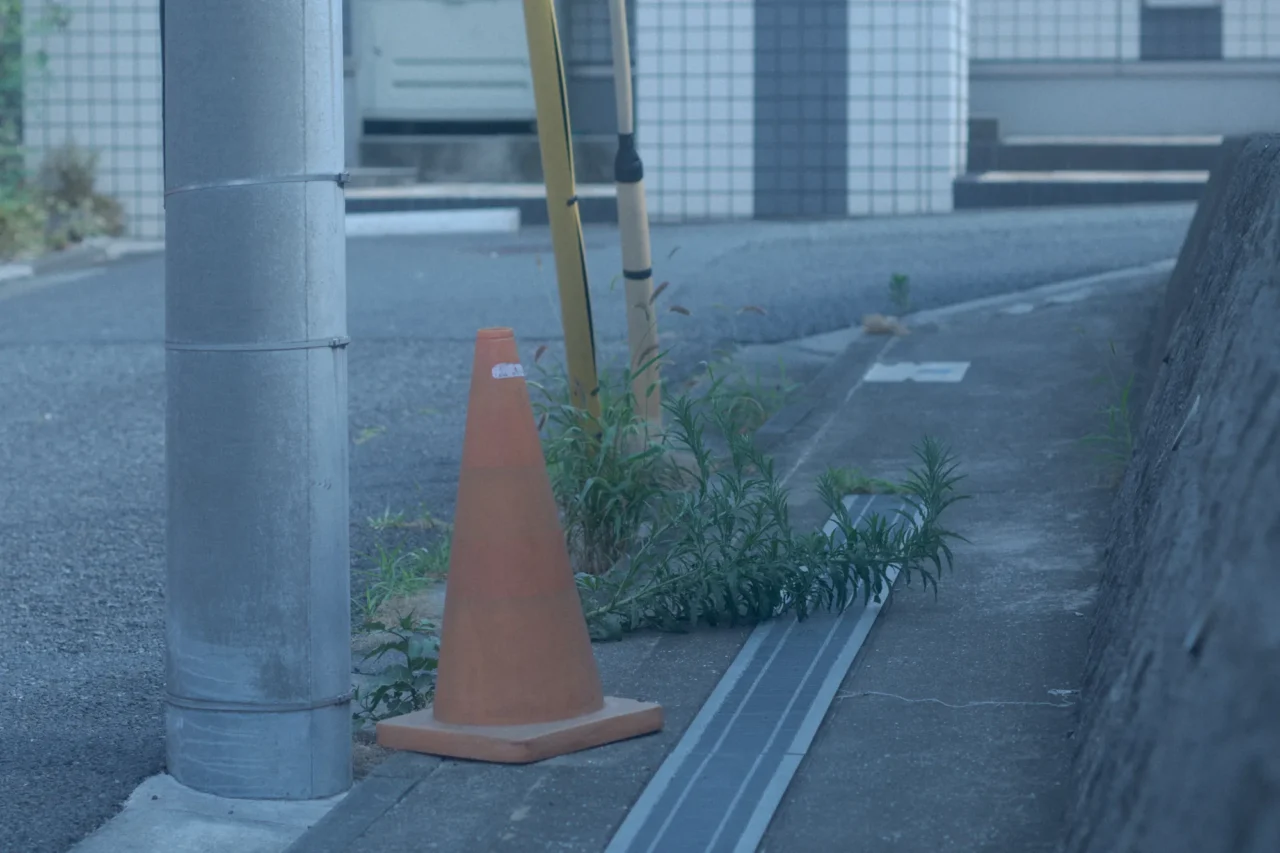
INDEX
A Growing Urge to Connect from Childhood to Adulthood
The album begins with “Intro: Good Morning, This Is a Navigation to Nowhere” and closes with “Waiting for the Sun (Reprise),” essentially reversing the structure of your previous album MY REVOLUTION, which opened with “Waiting for the Sun” and ended with “Good Morning.” Also, the lyrics of “Tabun Akuma ga” seem to connect thematically with “Waiting for the Sun,” giving a sense of continuity and story across the album. Was this structure something you planned from the beginning of production?
Uchimura: That flow wasn’t set from the very start of production.
Motomura: Right. It was actually Sunai’s idea around the midpoint of making the album. So while the connection to the previous release is clear, the reasoning behind it is something only Sunai can explain [laughs]. What’s unusual about this album is that we didn’t really share these conceptual ideas among the members very much.
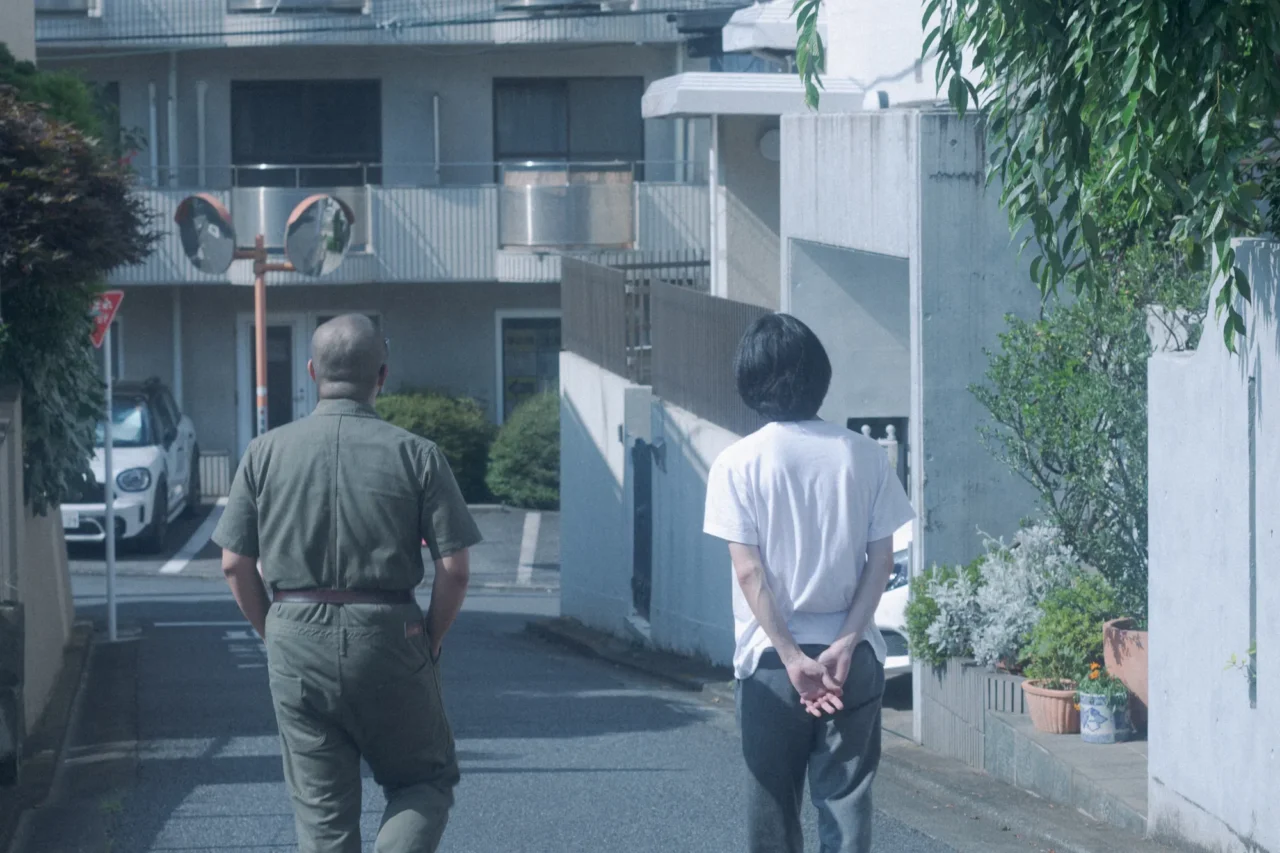
Uchimura: Exactly. The “ambiguity” theme I mentioned earlier didn’t appear until after we finished recording the vocals. I knew that the chorus of “Tabun Akuma ga” connected to “Waiting for the Sun,” but I didn’t realize the A-section lyrics were also linked. A lot of it happened unconsciously. And the idea to end the album with “Waiting for the Sun (Reprise)” came from Sunai too. We finalized the track order toward the end of recording and recorded that final track in one take on the last studio day. After that, Sunai stepped back and looked at the album from the outside, reflecting in a self-critical way, thinking, “So what exactly was this album about?”
Motomura: Sunai is a fascinating person. He’s a creator, but he also has a critical eye and a wide range of perspectives. Even if the person making something isn’t aware of it, he can see connections to history or to the place it was born — what you might call a “meta perspective.” He can make those unseen connections visible.
Because Sunai took the role of overseeing the whole, the album ended up with that perspective strongly present. If everyone worked from that meta view, it probably wouldn’t be as compelling. But in Yuransen, some members take a meta approach while others dive deeply into the creative process — that balance is really characteristic of the band.
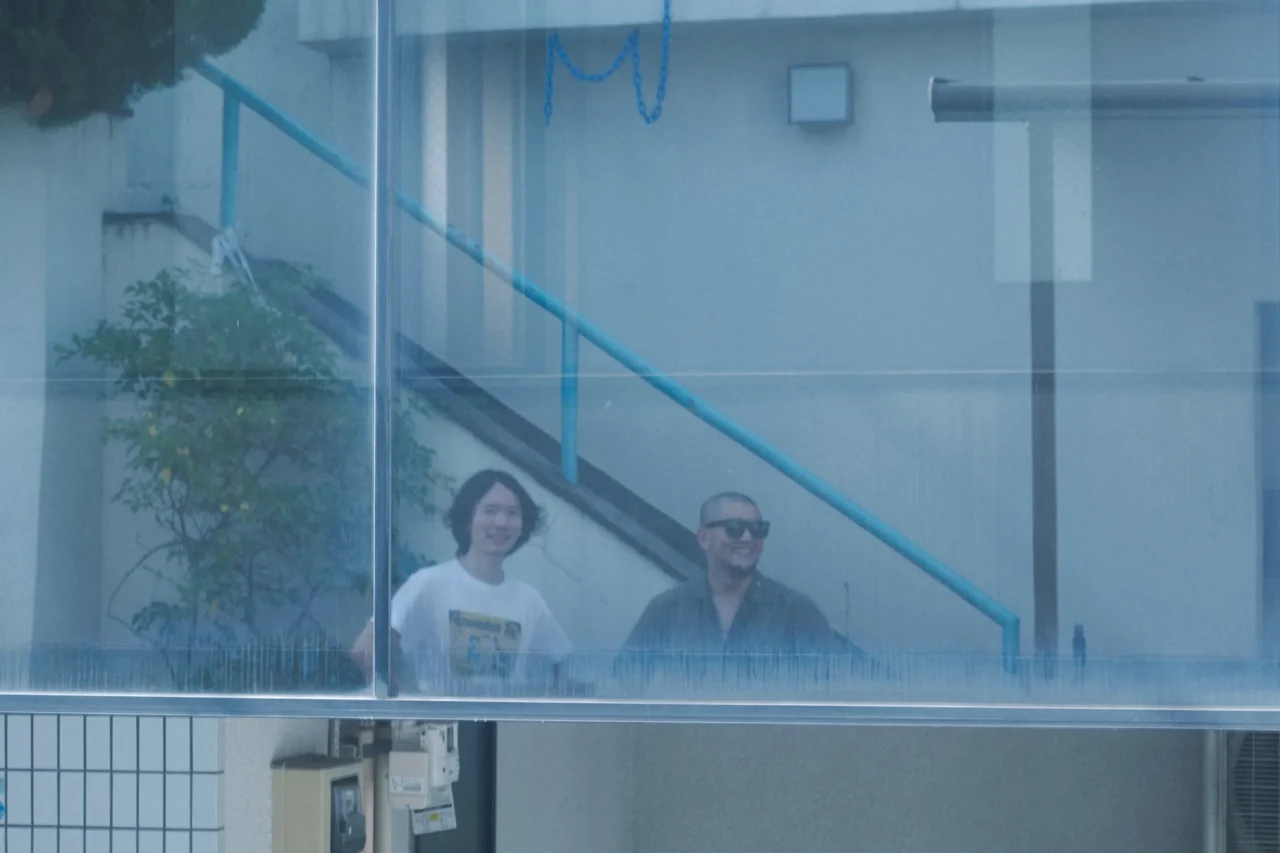
If we imagine MY CHEMICAL ROMANCE having a protagonist, how do you think that character has changed from MY REVOLUTION to this album? I’d love to hear both of your thoughts.
Motomura: I think the revolution probably happened in the previous album, but the protagonist hadn’t yet reached a truly optimistic place. MY REVOLUTION had a somewhat unreal, fantastical foundation. This album still has surreal elements, but I feel it’s much more grounded in reality.
So, if I had to answer, “How has the protagonist changed?” I’d say they’ve grown up. Time has moved forward. But even as time passes, the protagonist stays “there,” waiting for something. They’re passive in that sense. There’s a sense of waiting, and I really like that.
What about you, Uchimura?
Uchimura: Yeah… the song “Childhood’s End” expresses a feeling of, “I’ve reached 30, it’s about time.” It’s like saying, “My childhood is over.” Sunai composed this song, and when he gave me the melody, these lyrics naturally emerged. I hadn’t set out to write them that way, but I was kind of pleased thinking, “Oh, so this is the kind of words that come out of me now.”
Motomura: It feels very real. I think it’s about how life just keeps moving forward.
Uchimura: Yeah, I’d say it has a strong sense of reality.
The track after “Childhood’s End” is “Letter to Flowers.” The album cover also features a bouquet—what does the motif of “flowers” mean in the context of this album?
Uchimura: Ah… ultimately, it’s more like something you give to someone. Even before we started production, we talked about wanting to make something open, something that could be shared. Musically, it didn’t end up exactly like that, but we wanted the album to feel airy and transparent, as if it had been recorded in one take.
Motomura: And tying back to what we were saying about social awareness, I think compared to our previous works, there’s a stronger feeling of wanting to reach out, to send something outward. In that sense, flowers as something to give or send naturally connect to this album.
Uchimura: Exactly. I think that desire to “deliver” is something that has grown within the band itself.
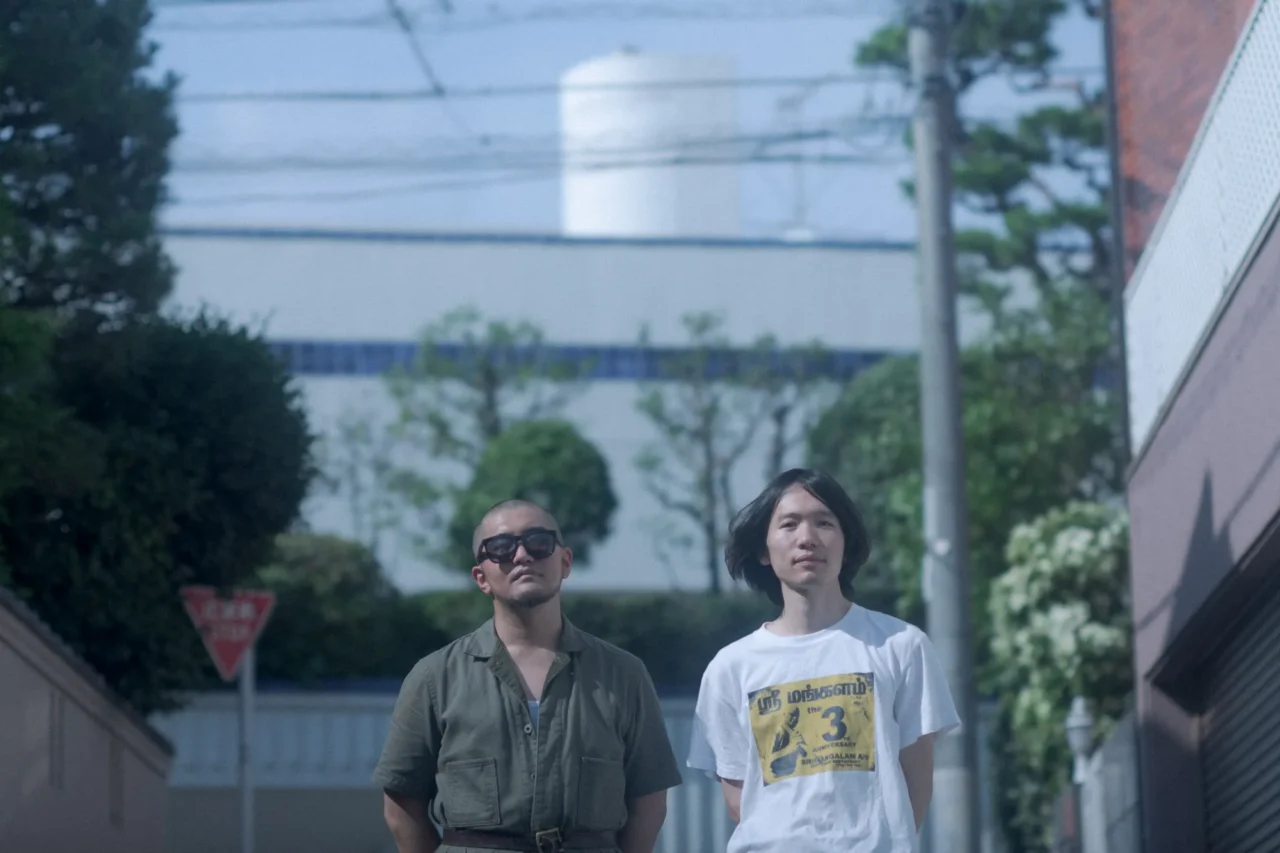
Yuransen 3rd Album『MY CHEMICAL ROMANCE』

Release Date: Wednesday, July 2, 2025
CD Price: ¥3,300 (tax included)
Catalog Number: KAKU-223
Pre-add / Pre-save: https://FRIENDSHIP.lnk.to/MYCHEMICALROMANCE_yuran
Tracklist (13 tracks):
1 Intro: Good Morning, This Is a Navigation to Nowhere
2 Tabun Akuma ga
3 Departure
4 Crack Up!
5 Shōsō
6 Blue Line
7 Carry Me to Heaven (Accelerated)
8 Thank God I’m in Heaven, or Transmission from Behind the Moon
9 How dare you?
10 after nightfall
11 Childhood’s End
12 Letter to Flowers
13 Waiting for the Sun (Reprise)
Yuransen 3rd ALBUM “MY CHEMICAL ROMANCE” Tour
Yuransen 3rd Album MY CHEMICAL ROMANCE Release Tour
Saturday, September 13, 2025
OPEN: 17:00 / START: 18:00
Venue: Umeda Shangri-La, Osaka
Lineup: Yuransen / Support Guest TBA
Inquiry: GREENS 06-6882-1224 (Weekdays 12:00–18:00)
Sunday, September 14, 2025
OPEN: 17:00 / START: 18:00
Venue: Live House nano, Kyoto
Lineup: Yuransen (Solo Show)
Inquiry: GREENS 06-6882-1224 (Weekdays 12:00–18:00)
Monday, September 15, 2025 (Holiday)
OPEN: 17:00 / START: 18:00
Venue: Shin-Sakae Shangri-La, Nagoya
Lineup: Yuransen / Support Guest TBA
Inquiry: JAILHOUSE 052-936-6041 (Weekdays 11:00–15:00)
Sunday, September 21, 2025
OPEN: 17:00 / START: 18:00
Venue: Shibuya CLUB QUATTRO, Tokyo
Lineup: Yuransen (Solo Show)
Inquiry: Hot Stuff Promotion 050-5211-6077 (Weekdays 12:00–18:00)
■TICKETS
General Advance ¥4,500 / U-22 ¥3,000
Separate 1-drink fee required
U-22 ticket holders must present a valid ID at the entrance for age verification. Please note that if you cannot provide ID, you will be charged the difference in price.




